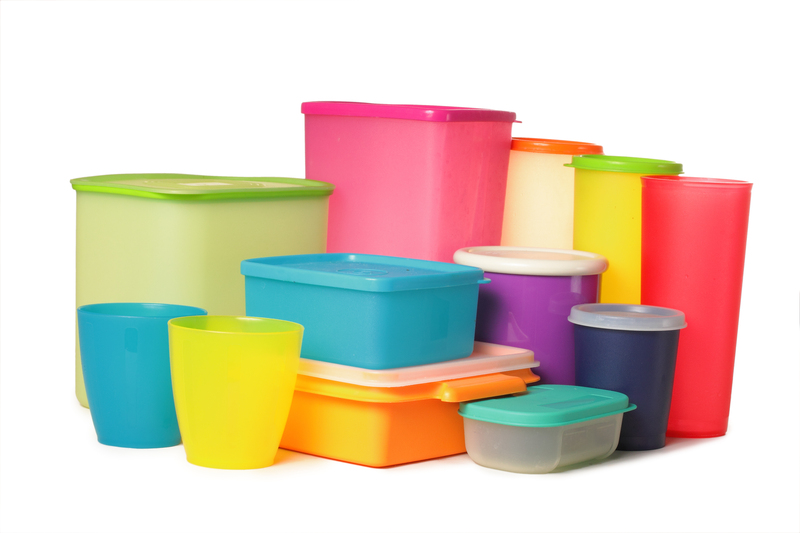Choices in Waste Management: What is a Builder's Skip
Posted on 13/10/2025
Choices in Waste Management: What is a Builder's Skip
Effective waste management is crucial for modern construction, home renovation, and even large-scale landscaping projects. Amid various waste disposal options, one stands out for its utility, versatility, and convenience: a builder's skip. Whether you've just heard the term or are comparing disposal solutions for your next project, understanding what a builder's skip is, along with its role in waste management, can help you make informed, cost-effective, and eco-conscious choices.
Understanding Waste Management Choices
The range of waste management options available today is vast: from household wheelie bins and local recycling centers to professional grab lorries and roll-on roll-off skips for industrial waste. Each approach offers unique advantages depending on waste volume, site space, material type, and budget.
Among these choices, builder's skips remain an enduring favorite for:
- Construction and demolition waste
- Major garden clearances
- Large domestic refurbishments
- Commercial fit-outs
- General bulk waste disposal
But what exactly is a builder's skip, and how does it fit into modern waste disposal strategies?

What is a Builder's Skip?
Builder's skips are large, open-topped metal waste containers designed for temporary storage and removal of construction and demolition waste. Typically delivered and collected by skip hire companies, these skips are used across domestic, commercial, and industrial sites nationwide.
A builder's skip combines generous capacity, tough construction, and ease of access. It is specially designed to handle the heavy, bulky, and often mixed waste generated during building activities and renovations.
Key Features of Builder's Skips
- Sturdy build from durable steel to accommodate rough, heavy materials
- Open top for easy loading by hand or with machinery
- Distinctive shape that allows for stacking or compact transport
- Clearly marked for safety on public roads and sites
Builder's skips are the middle ground between smaller mini skips (2-3 yards), often for domestic waste, and massive roll-on roll-off containers (20-40 yards) used for industrial-scale jobs. They offer the ideal balance of size, convenience, and affordability for most construction and larger-scale domestic needs.
Common sizes include:
- 6-yard builder's skip
- 8-yard builder's skip (often called a "standard" builders skip)
- 10-yard builder's skip (extra-large or maxi builders skip)
How Big is a Builder's Skip?
When discussing builder's skip sizes, it's important to understand both capacity (measured in cubic yards or cubic metres) and physical dimensions. Here's a breakdown:
| Skip Size (Yards) | Approximate Capacity (Bin Bags) | Dimensions (L x W x H) | Typical Use |
|---|---|---|---|
| 6 Yard | 50-60 | 2.6m x 1.5m x 1.2m | Medium house clearances, garden waste, small renovations |
| 8 Yard | 60-80 | 3.6m x 1.8m x 1.2m | Builders rubble, soil, hardcore, general construction waste |
| 10 Yard | 80-100 | 3.7m x 1.8m x 1.6m | Large renovations, commercial projects, bulky items |
In practical terms, a standard 8-yard builder's skip is by far the most popular choice for building projects. It is large enough for major rubbish clearance but still fits on most driveways or construction sites. If in doubt, consult your local skip hire provider with details of your project for expert advice.
Types of Waste You Can Put in a Builder's Skip
Builder's skips are renowned for taking a wide range of waste materials, including:
- Concrete, bricks, tiles, and hardcore
- Soil and rubble
- Wood (timber, joists, fencing, doors)
- Metals (pipes, fixtures, ironmongery)
- Plastics and uPVC
- Packaging waste
- General non-hazardous construction waste
However, there are important restrictions! The following items generally cannot go in a builder's skip:
- Asbestos, chemicals, or hazardous substances
- Electrical equipment (fridges, TVs, computers)
- Tyres and batteries
- Paints, solvents, or oils
- Medical waste
- Gas cylinders
Always check your skip hire company's specific rules to avoid penalties or collection refusal.
Why Choose a Builder's Skip for Waste Management?
Benefits of Using a Builder's Skip
- Convenience: No repeated trips to the tip--load waste as work progresses.
- Time savings: Quickly dispose of large volumes.
- Cost efficiency: One set hire fee covers delivery, collection, and disposal.
- Safety: Reduce debris and hazards on-site, keeping workspaces clear and compliant.
- Sustainability: Most skip waste is processed at licensed facilities, with high recycling rates.
In addition to these advantages, builder's skips are often required for ensuring compliance with Construction (Design and Management) Regulations and site safety standards.
Environmental Considerations and Recycling
Choosing the right waste solution isn't just about convenience and price; environmental impact matters too. Skip-hire operators today are under strict regulatory guidelines to recycle as much skip content as possible. At licensed Materials Recycling Facilities (MRFs), content from your builder's skip is:
- Manually and mechanically sorted
- Recategorised into recyclable fractions (wood, metal, plastics, soil, hardcore)
- Processed for reuse, recycling, or energy recovery
On average, reputable skip companies divert 70% to 95% of all skip waste from landfill, significantly cutting your project's environmental footprint. For green credentials and responsible waste management, builder's skips are a solid choice.

How to Maximise Recycling from Your Skip
- Segregate materials: Keep recyclables like metal, wood, and plastics together
- Avoid contamination: Don't mix general waste with forbidden hazardous items
- Communicate with your skip supplier: Some offer specialist recycling skips for single waste streams
How Much Does a Builder's Skip Cost?
The cost of hiring a builder's skip can vary widely depending on:
- Skip size
- Length of hire
- Your location
- Local permit requirements
- Type and weight of waste
- Service add-ons (next-day delivery, wait-and-load, online skip tracking)
As a guide, a standard 8-yard builder's skip hire in the UK (2024) ranges from ?220 to ?350 including VAT for up to 14 days. Shorter or longer hire periods, or specialist waste types, can adjust this price. Be sure always to obtain a detailed quote and understand what is--and isn't--included in the price.
Skip Permits and Placement Rules
If your skip will fit within your property (driveway or garden), you likely need no permit. If it must be placed on public land or the road, many councils in the UK and Ireland require a skip permit. These are:
- Arranged via your skip company or direct from the local authority
- Issued for a set period (typically 1-2 weeks, with renewal options)
- Dependent on the use of audible warning lights and reflective markings for safety
Always factor permit costs and lead times into your project planning. Fines can result from unlicensed or improperly placed skips.
Space and Access Requirements
Ensure your drive or construction site allows safe access for skip delivery and collection vehicles (usually a large lorry). Clear any obstructions and inform your provider of any restricted access, low bridges, or tight corners before booking.
Alternatives to Builder's Skips
Depending on your waste type and site constraints, builder's skips may not suit every project. Consider these alternatives:
- Mini or midi skips: Perfect for light refurbishment or limited space
- Roll-on roll-off skips: For very large commercial or demolition jobs
- Grab hire: Fast removal of loose soil, rubble, or aggregates with minimal manual loading
- Man and van waste clearance: For small quantities, bulky furniture, and non-construction waste
A professional skip hire company can recommend the most economical and practical solution tailored to your job.
Top Tips for Hiring and Using a Builder's Skip
- Book in advance: Especially in busy seasons or urban areas
- Don't overfill: Fill level lines must not be exceeded for legal road transport
- Be clear on restricted items: Avoid rejected collections or surcharges
- Maximise capacity: Break down bulky items and load efficiently
- Choose a licensed supplier: Look for Environment Agency registration

Frequently Asked Questions About Builder's Skips
1. What is the difference between a builder's skip and a regular skip?
"Regular skip" is a broad term; builder's skips typically refer to 6-8 yard containers ideal for construction and demolition waste. They are larger and more robust than domestic mini skips, but smaller than industrial roll-on roll-off skips.
2. How do I know if I need a builder's skip or something bigger?
If you're handling rubble, bricks, timber, and household renovation waste (from kitchens, bathrooms, or extensions), an 8-yard builder's skip is usually sufficient. For total property clear-outs or multiple trade teams, a 10-yard skip or roll-off might be best.
3. How long can I keep a builder's skip?
Standard hire periods are 7-14 days, but most suppliers offer flexible extensions. Permits for on-road placement may limit duration; always clarify timings when booking.
4. What happens to my waste after the skip is collected?
Your waste is taken to a licensed sorting facility, where recyclables are separated, and only residual, non-recyclable waste is landfilled. This process is regulated for sustainability.
Conclusion: Is a Builder's Skip Right for Your Project?
Builder's skips are the go-to choice for efficient, safe, and responsible waste disposal on construction, refurbishment, landscaping, and heavy clearance jobs. Their combination of capacity, durability, and ease of use make them the preferred solution for both professional trades and private individuals.
When you need a reliable way to deal with high volumes of waste, want to save hours on tip runs, and ensure your project meets environmental targets, a builder's skip is a smart investment.
Remember to weigh up skip size, access, regulations, and environmental credentials when booking. Use this essential guide to choices in waste management to make the best decision for your next project!
Looking for more detailed information, local skip hire options, or advice on eco-friendly waste management solutions? Get in touch with professional waste consultants or your local skip rental company today, and take control of your build's environmental impact!
Latest Posts
The Benefits of Proper Electronic Waste Management
Fostering a Greener Workplace Community
Working Green: Smart Solutions for a Low-Waste Workplace
Tackling Waste Over Time: Evolution of Disposal and Recycling

